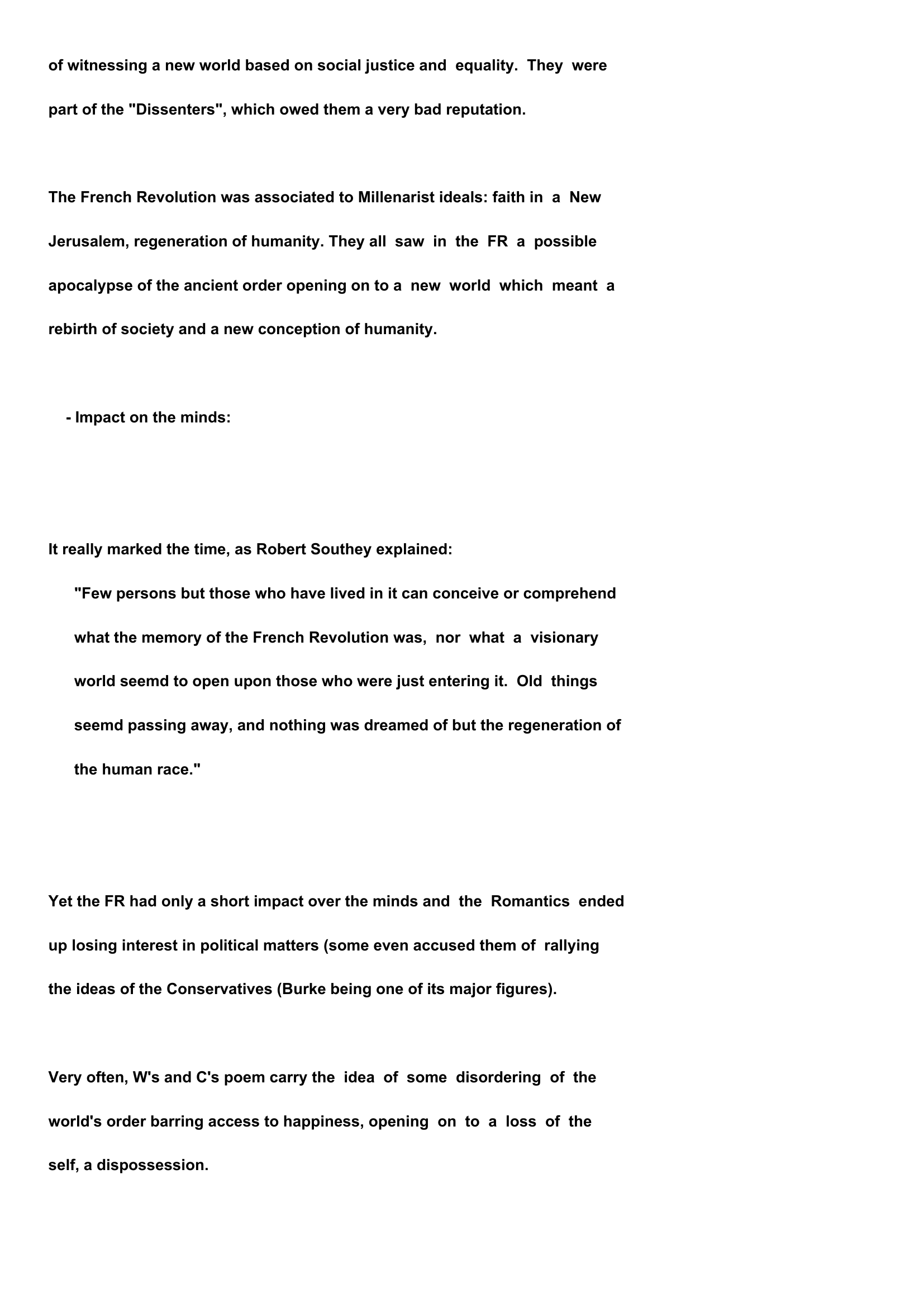The French Revolution
Publié le 18/09/2012

Extrait du document
«
of witnessing a new world based on social justice and equality.
They were
part of the "Dissenters", which owed them a very bad reputation.
The French Revolution was associated to Millenarist ideals: faith in a New
Jerusalem, regeneration of humanity.
They all saw in the FR a possible
apocalypse of the ancient order opening on to a new world which meant a
rebirth of society and a new conception of humanity.
- Impact on the minds:
It really marked the time, as Robert Southey explained:
"Few persons but those who have lived in it can conceive or comprehend
what the memory of the French Revolution was, nor what a visionary
world seemd to open upon those who were just entering it.
Old things
seemd passing away, and nothing was dreamed of but the regeneration of
the human race."
Yet the FR had only a short impact over the minds and the Romantics ended
up losing interest in political matters (some even accused them of rallying
the ideas of the Conservatives (Burke being one of its major figures).
Very often, W's and C's poem carry the idea of some disordering of the
world's order barring access to happiness, opening on to a loss of the
self, a dispossession..
»
↓↓↓ APERÇU DU DOCUMENT ↓↓↓
Liens utiles
- Napoleon I I INTRODUCTION Napoleon I (1769-1821), emperor of the French, whose imperial dictatorship ended the French Revolution (1789-1799) while consolidating the reforms it had brought about.
- The Rights of Man Declaration With this declaration, the French National Assembly addressed many of the French people's grievances with the monarchy and established the ideals of the French Revolution.
- the perfect french..
- Robespierre: "Louis Must Perish" French lawyer Maximilien Robespierre became involved in politics when he was elected to the Estates-General in 1789.
- Poseidon Greek Sea god and one of the Olympian gods; son of Cronus and Rhea; brother of Zeus, Hades, Demeter, Hera, and Hestia; husband The Roman goddess Pomona displays her fruits of plenty in the painting by French artist Nicholas Fouche (1653-1733).

































